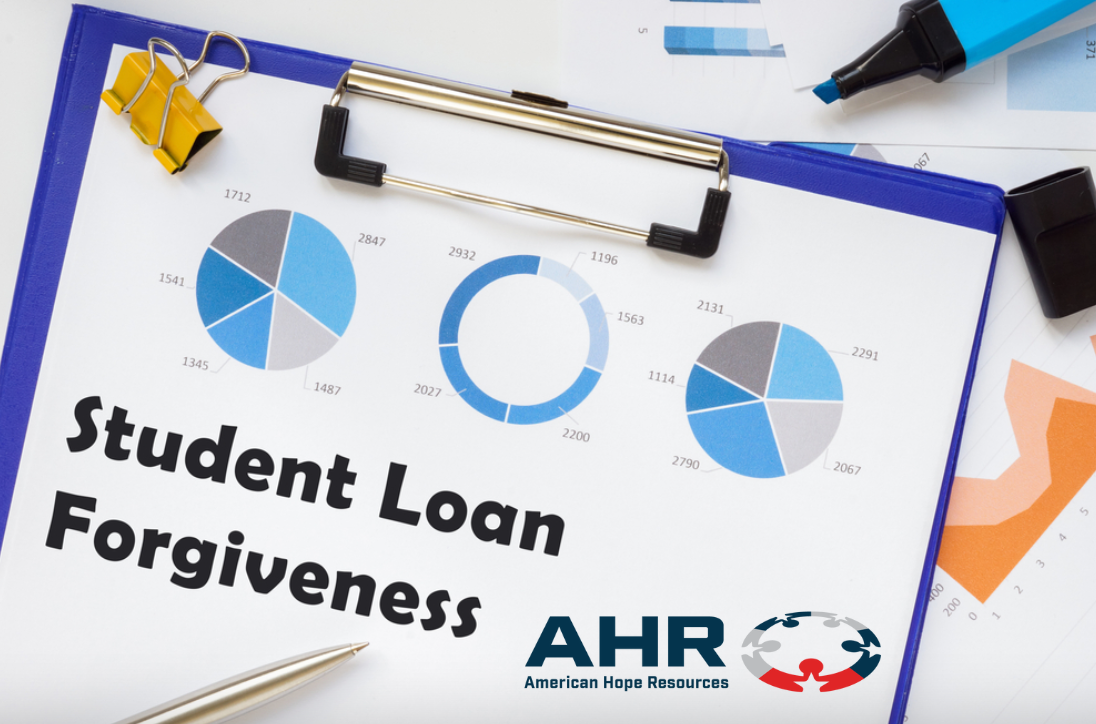
Many people have been stuck paying student loans for several years. The frustrating aspect is when this is done from their meager incomes. Thankfully, student loan debts will no longer be too much of an issue.
It was announced by the Federal Government on the 24th of August that there will be nationwide student loan forgiveness of up to $20,000 for federal student loans. American Hope Resources has broken down what this all means. The breakdown can be seen below.
WHAT HAPPENS IF YOU CAN NOT PAY YOUR STUDENT LOANS?
If you ever get tempted to ignore your student loans, remember that it is one of the biggest mistakes you could make. If you refuse to pay your student loans when they are 90 days overdue, they become officially delinquent.
This will cause your credit rate to take a hit. A bad credit rating is the last thing you want to have on your record. Prospective employers or landlords usually check for credit ratings to test your credibility.
Utility companies and cell phone service providers also require credit ratings. The cell phone companies might deny you the services you need, and you might have to pay an extra security deposit to the utility companies.
After 270 days of non-repayment of your student loans, your account is in default. Your account is then referred to a collection agency by the financial institution to which you owe money.
This collection agency will do everything short of what the Fair Debt Collection Practices Act (FDCPA) prohibits. The Federal government can also seize your tax refund and apply it to your outstanding debt or place a garnishee order on your paycheck.
WHAT DOES STUDENT LOAN FORGIVENESS MEAN, AND WHY IS IT A GREAT IDEA?
Student loan forgiveness is not to miraculously cancel your debt. However, they help to ease it up or erase it after several years of repayment. You can apply for your student loans to be forgiven if you meet specific criteria.
Some of the advantages of student loan forgiveness include the following;
- Improved income flow for borrowers
- Relief of outstanding debts
Student loan forgiveness, however, has its cons, as outlined by the American Hope Resources below;
- The forgiven amount could be taxable.
- Relief may not be available until after years of repayment
- Student loan forgiveness is not available to everyone.
HOW DO YOU KNOW THAT YOU ARE ELIGIBLE FOR STUDENT LOAN FORGIVENESS?
As parents, it’s your responsibility to help your children understand the student loan process. This will make it easier for them to know their options.
Those who are eligible for student loan forgiveness are those who have taken federal student loans. You must also earn less than $125,000 per year or $250,000 per household.
If you meet this standard, you will be eligible to get up to $10,000 of your student loans cancelled. However, receiving a Pell Grant during your education may qualify for up to $20,000 in debt cancellation.
It has been reported that forgiveness will only apply to student loans taken before July 2022. Also, not any loan can be forgiven. Private loans are not eligible for forgiveness.
Only Federal loans are eligible for student loan forgiveness. However, Perkins loans and Federal Family Education Loans (FFEL) are not eligible for forgiveness.
Leave a Reply